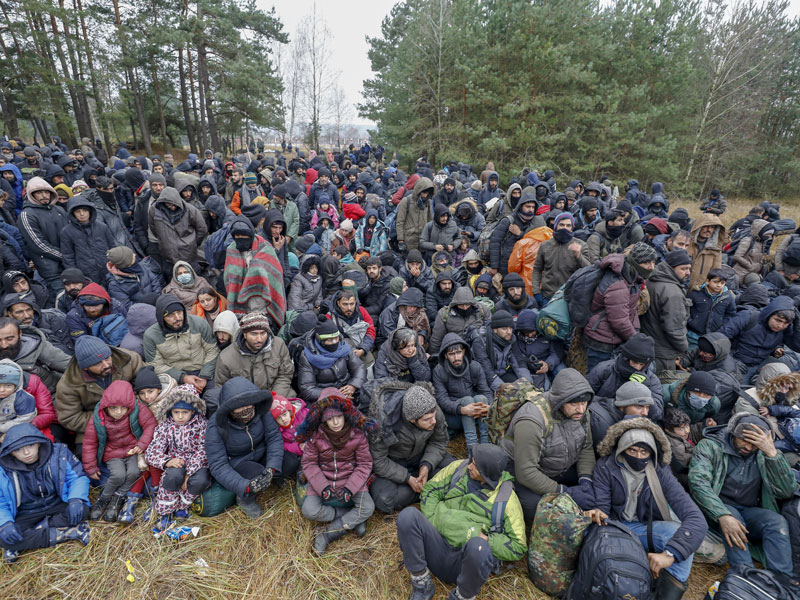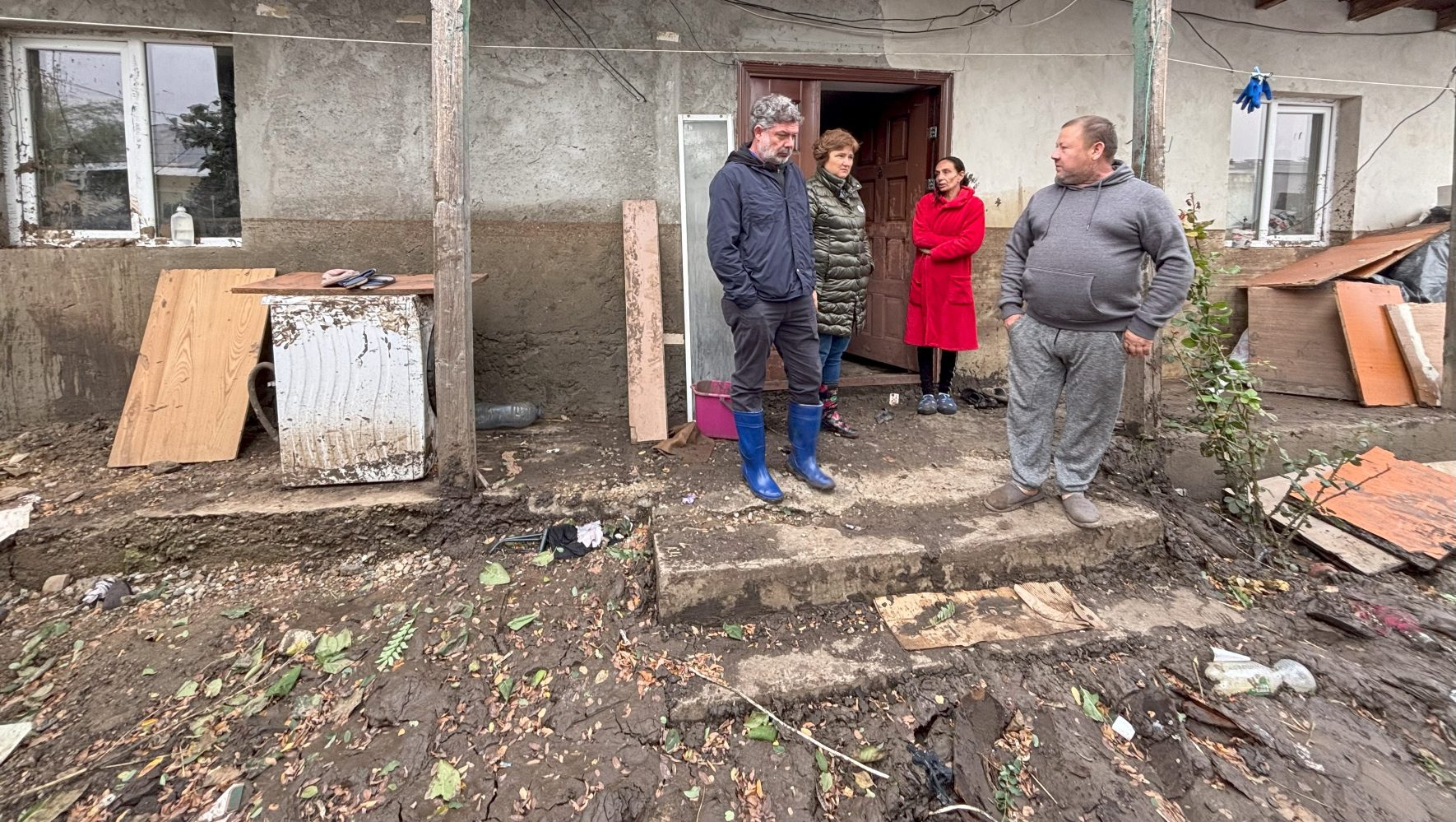Migrants Caught in the Middle of Poland-Belarus Border Crisis
By Ilan Cohn, HIAS Europe Director
Nov 24, 2021

Migrants wait at the Polish-Belarusian border on November 18, 2021 in Grodno, Belarus. Thousands of people are trapped in freezing conditions at the Poland-Belarus border.
(Sefa Karacan/Anadolu Agency via Getty Images)
The current situation along the Belarus-Poland border has left thousands stranded in limbo between squabbling governments. HIAS Europe signed on to a joint statement with other European civil society organizations expressing shock and condemning the use of people as pawns.
“The people themselves are not a security threat, and should not be treated by either side as though they were a weapon,” the groups said.
For the past few months the Belarusian government has reportedly been encouraging migrants to travel to Belarus, granting visas to thousands of Middle Easterners and others and allegedly even bussing them to the borders of European Union members Poland, Latvia, and Lithuania. In response to the rising number of migrants reaching their border, the Polish government constructed a border fence to prevent people from entering.
With the police and military on both sides, these people — many migrating for different reasons, some possibly seeking asylum — are literally caught in the middle. Journalists and humanitarian organizations have been prevented from accessing the area, and essential supplies and medical support have not reached those in need. It has been reported that 13 people have died since the onset of the crisis.
“As we move into winter, and the temperature drops, we are concerned about the wellbeing and safety of the people stuck between border forces, in an escalating humanitarian crisis,” said Enrique Torrella, Regional Director for the Africa and Eurasia Region at HIAS. “Migrants are not at fault here. While we understand that there are genuine security concerns for the EU, more needs to be done to ensure that those stuck at the border are able to have their basic needs met.”
HIAS Europe and the other groups are asking that the EU and international organizations ensure access to asylum at the borders and guarantee humanitarian access.
Despite limited access to the border, some in the Polish Jewish community have been trying to help. Jewish Community Centers in Warsaw and Krakow, in partnership with the European Union of Jewish Students and HIAS Europe will be launching a Hanukkah campaign to raise awareness and funding for asylum seekers and refugees in Poland, as well as at the border with Belarus.
Michael Schudrich, Chief Rabbi of Poland, has also spoken out against the treatment of migrants at the border, calling Belarus’ directing migrants to the border with Poland “a cynical political game.”
“As a human being, Jew, and rabbi,” he said, “it is my duty to speak out on humanitarian issues.”


